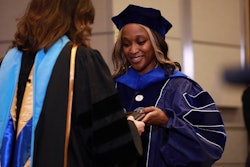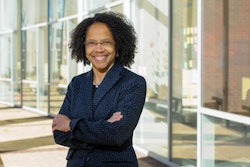Rutgers University Reorganization Preserves All-Female Campus Presence
NEW BRUNSWICK, N.J.
The Rutgers University board of governors recently approved a major university reorganization, simplifying a complicated system of undergraduate colleges even as it preserved an all-female niche on the campus.
The plan, adopted by a vote of 10-1, mostly takes effect in fall 2007. It gathers four of the five colleges at the central New Brunswick/Piscataway campus and consolidates them into a School of Arts and Sciences with unified admissions standards and academic requirements. The remaining college, Cook College, will become the School of Environmental and Biological Sciences.
The changes are meant to streamline a university experience that Rutgers officials complained was confusing and unfair, with students considering some colleges better than others.
“We’re making one of the most significant transformations in the 240-some-year history of Rutgers and reorganizing ourselves on our largest campus, reorganizing especially the way we provide for our students,” says school president Richard L. McCormick.
“It assures that for the next generation at least, men and women coming to Rutgers will get an outstanding education,” he says.
The reorganization represents a compromise for students, staff and alumnae at the all-women’s Douglass College, who had complained that earlier proposed changes would destroy an 88-year-old bastion of women’s education.
In its final form, the plan preserves the college’s all-female campus and women-oriented programs under the banner of the Douglass Residential College.
The residential college will function as a four-year program where women can stay in all-female dorms and take classes centered on women’s issues. However, it will not set its own graduation requirements.
Douglass supporters still argued that the institution should be officially called a “college,” not a “residential college.” But a measure to preserve the “Douglass College” name failed in a 9-2 vote.
The system of colleges was the product of Rutgers being a combination of mostly independent academic institutions through much of its history, which dates to the 18th century. The colleges each had their own faculties and academic departments until 1980.
Critics of the college system say the separate admissions and academic requirements confuse students and cause the impression that some colleges are better than others.
Besides the reorganization of the colleges, the plan also calls for the creation of a new core curriculum and a campuswide honors program.
It promises that the new unified services on campus will be available at each of the campuses — Busch, College Avenue, Cook, Douglass and Livingston — created in the aftermath of the colleges. The plan says services will be provided equally across campus.
David Jefferson Harris Jr. was the lone board member to vote against the plan, arguing that the unified standards and requirements would be tougher than those that exist now.
“Once we adopt this resolution, it will be more difficult to be admitted to Rutgers University, it will be more difficult to graduate from Rutgers University, it will be more difficult to find success if you’re a woman or a minority here,” he said during the meeting.
Responding to Harris’ concerns afterwards, McCormick said Rutgers would preserve a diverse community.
“We have consulted admissions professionals within and beyond Rutgers and we know we can maintain the diversity of our student body and we will. In fact, I’d like to increase it in years to come,” McCormick said.
— Associated Press
© Copyright 2005 by DiverseEducation.com





















